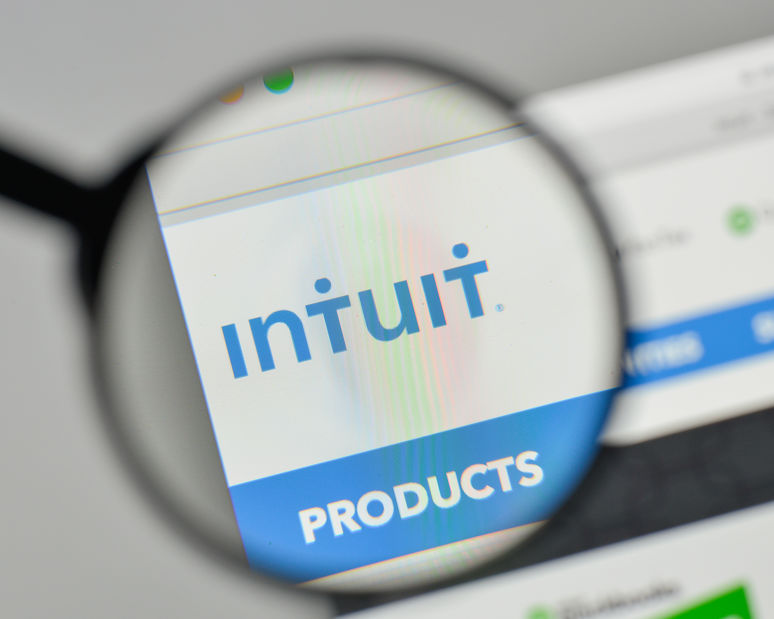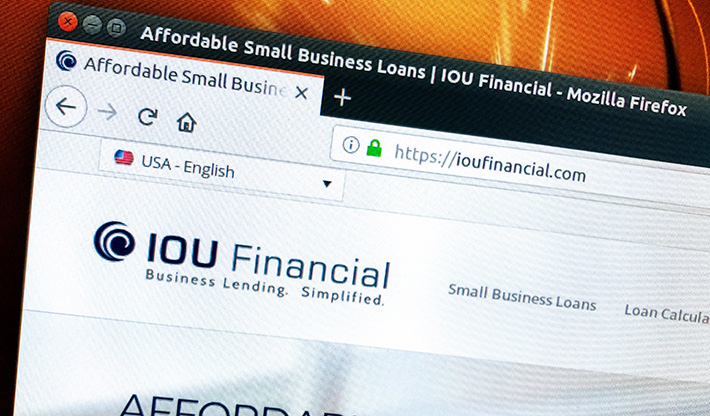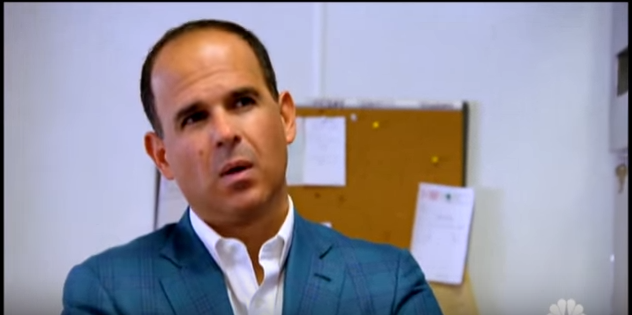Business Lending
Facebook Enters the Invoice Factoring Arena and More
September 11, 2021 Facebook is the latest tech company to enter the small business financing space. Starting October 1st, Facebook will begin offering eligible American businesses the opportunity to sell their invoice receivables for cash upfront. The only cost is a 1% fee of the A/R and invoices can be as small as $1,000.
Facebook is the latest tech company to enter the small business financing space. Starting October 1st, Facebook will begin offering eligible American businesses the opportunity to sell their invoice receivables for cash upfront. The only cost is a 1% fee of the A/R and invoices can be as small as $1,000.
Dubbed Facebook Invoice Fast Track, a promotional video touts it as a solution to cash flow challenges.
The caveat is that it will only be open to businesses owned by minorities, females, veterans, LGBTQ+ or someone with a certified disability. Also, the invoices must be issued to a corporation or government entity with an investment-grade rating. An outstanding invoice from something like “Joe’s corner t-shirt shop” for example, would not be eligible.
Facebook COO Sheryl Sandberg predicts the company will be funding $100 million in invoices on an ongoing basis.
That’s not all, however. The company is also introducing a new small business loan resource through an arrangement with Connect2Capital. Facebook claims that in doing so, it is not “brokering” loans.
The developments may not be all that unsurprising given Facebook’s recent foray into India’s small business loan market.
Aquila Services Inc. Has Ceased Operations
September 9, 2021Aquila Services Inc, a data-driven small business cash flow management platform, ceased operations sometime early last year, deBanked has learned. The company had been trying to pivot even before the pandemic began. CEO and Founder Taariq Lewis, who had spoken about AI and machine learning at some length to us in 2018, updated the company’s website with the bad news.
Aquila is now closed for business and we have shut down our servers after a three year run. Thanks to all our 9,688 customers and our many investors for allowing us to provide cash flow analysis for small businesses.
If you are seeking business funding, please be sure to check our partners at Rapid Finance, Credibly, Kabbage, and others for access to capital and please check with Home Depot for discounts on construction equipment.
Lewis is now listed as a co-founder of UniFi DAO, according to LinkedIn.
Knight Capital Technology to Play Continuing SBA Loan Role at Ready Capital Corporation
September 7, 2021 Ever since Ready Capital’s name arrived on the big stage for its leading role in the nation’s PPP lending, the company has continued to be very active in small business lending. They completed round 2 of the PPP program with $2.2B in loans to more than 72,000 small businesses. For comparison’s sake, that’s twice what PayPal contributed, who provided $1B to 43,000 businesses.
Ever since Ready Capital’s name arrived on the big stage for its leading role in the nation’s PPP lending, the company has continued to be very active in small business lending. They completed round 2 of the PPP program with $2.2B in loans to more than 72,000 small businesses. For comparison’s sake, that’s twice what PayPal contributed, who provided $1B to 43,000 businesses.
Ready Capital is the #1 non-bank in the nation in 7(a) SBA loan originations this year so far, according to John Moser, President of the company’s SBA lending division, and is #7 in the entire SBA lending industry nationwide.
Some of the technology behind their success can be attributed to Knight Capital, the company Ready acquired back in 2019. Knight has enabled the company to roll out offerings of SBA loans under $350,000, which it is using to grow its already impressive marketshare.
Speaking about Knight, Ready Capital CEO Thomas Capasse said in the Q2 earnings call, the “[Knight] investment will be levered into more technology affinity-based expansion of the SBA business.”
Overall, the company is optimistic. “Ready Capital is off to a strong start in 2021,” Capasse said during the call. “We have accomplished much in the first quarter of the year with our small balance commercial or SBC, CRE lending operations and Small Business Administration or SBA 7(a) lending businesses, posting record originations, including high volume in round two of the Paycheck Protection Program or PPP.”
Knight’s merchant cash advance business is combined with its small business lending division for quarterly reporting purposes so its individual stats are not easily ascertainable. The company still touts “same day business funding” on its website.
Iwoca Brings Flexible Repayment Loan Product to Funding Xchange
September 3, 2021 Iwoca, a UK-based small business lender, announced Wednesday that it will be launching a new flexible loan product for online sellers through Funding Xchange. According to Iwoca, they will be the first lender in the UK using “open banking” for revenue-based payments to online businesses on the marketplace.
Iwoca, a UK-based small business lender, announced Wednesday that it will be launching a new flexible loan product for online sellers through Funding Xchange. According to Iwoca, they will be the first lender in the UK using “open banking” for revenue-based payments to online businesses on the marketplace.
Small businesses in the UK operating in e-commerce can now apply for revenue-based financing between £1,000- £50,001 through Funding Xchange’s website. The loans will have monthly payments based on the borrower’s revenue, but will also allow businesses to choose repayment options that are based upon their daily ups and downs, allowing the borrower different payment amounts during times of slow business, seasonal disruptions, or other factors that may cause business to halt during certain times of the year.
“Our vision is to provide finance to SMEs when, where and how they need it. We are transforming small business lending through product innovation powered by technology, combined with creative distribution partnerships,” said Christoph Rieche, co-founder and CEO of Iwoca in a company release.
Iwoca has a history of being on the front line of innovation in lending, as they claim to be the first UK company to provide instant credit decisions with Amazon and eBay sellers. The company also claims to be the first company to offer a lending API in their services, while also taking credit for being the first SME lender to connect the 9 largest banks in the UK with open banking.
“Iwoca and Funding XChange are leaders in the use of intelligent technology to make SME funding more accessible, more affordable and more sustainable. By transforming the credit-assessment and cost-to-serve, we deliver targeted, self-serve propositions to underserved segments,” said Katrin Herring, CEO of Funding Xchange in the same release. “Given the challenges that the crisis has created for small businesses, this partnership is delivering critical access to finance to help businesses rebuild and flourish.”
Funding Circle Gets in to Buy-Now-Pay-Later (In UK)
September 2, 2021 Funding Circle is joining one of the trendiest markets in the industry right now, Buy-Now-Pay-Later (BNPL). The company will provide its customers with a way to spread supplier payments or invoice costs over 90 days by providing the capital upfront and allowing the borrower to pay later.
Funding Circle is joining one of the trendiest markets in the industry right now, Buy-Now-Pay-Later (BNPL). The company will provide its customers with a way to spread supplier payments or invoice costs over 90 days by providing the capital upfront and allowing the borrower to pay later.
It has been dubbed FlexiPay by the UK-based lender and will enable access to between £3,000 – £50,000 of upfront capital. Loan eligibility will be determined in minutes and the funds will be available almost instantaneously, according to Funding Circle. This combination of small business lending with BNPL services is seemingly unprecedented to the industry.
“We are really excited to be using our market-leading technology to launch FlexiPay, which is designed to support small businesses to manage and control their cash flow,” said Lisa Jacobs, the Europe Managing Director of Funding Circle. “The new product enables businesses to buy now and pay later on any business spend in a way that suits them.”
The payment option will give access to “interest-free” financing to borrowers with a flat fee of 3% per invoice, without any annual charges or setup fees. Access to FlexiPay will not be given to new customers until the end of the year.
According to a source familiar with Funding Circle, the company could possibly bring the FlexiPay concept to the US once they’ve fully rolled it out in the UK.
Intuit Originated $232M in Small Business Loans in Fiscal Year 2021
August 30, 2021 Intuit, the producer of QuickBooks and owner of Credit Karma, originated $232M in small business loans for the fiscal year of 2021 that ended on July 31. That was slightly below fiscal year 2020’s $243M and down significantly from 2019’s $316M. Cumulatively, however, the company has originated approximately $928M since it started lending at the end of 2017.
Intuit, the producer of QuickBooks and owner of Credit Karma, originated $232M in small business loans for the fiscal year of 2021 that ended on July 31. That was slightly below fiscal year 2020’s $243M and down significantly from 2019’s $316M. Cumulatively, however, the company has originated approximately $928M since it started lending at the end of 2017.
QuickBooks Capital requires that applicants have their bank accounts connected to the QuickBooks software and revenue of at least $50,000 over the past 12 months. APRs can range anywhere from 9.99% APR to 34% APR.
Intuit completed its acquisition of Credit Karma at the end of last year. Credit Karma generated a quarterly record revenue of $405 million.
IOU Financial Breaks All-Time Internal Loan Originations Record
August 26, 2021 IOU Financial originated $34.4M worth of small business loans in Q2, the company reported, a 272% increase over the same quarter last year. July was IOU’s best month ever, coming in at $18.5M in originations.
IOU Financial originated $34.4M worth of small business loans in Q2, the company reported, a 272% increase over the same quarter last year. July was IOU’s best month ever, coming in at $18.5M in originations.
The achievements follow a slew of announced changes, including new hires and a cash-back loan product.
“We are delivering on our Post-Pandemic Growth Plan and these growth figures are the result,” said Robert Gloer, President and CEO, in the quarterly earnings announcement. “We are committed to continue delivering on our plans and maximizing the growth potential of the marketplace strategy.”
The company hopes to originate between $165M to $200M of business loans for the year, which would be their best year ever, according to the deBanked Small Business Funder Rankings.
A Lawsuit Against Marcus Lemonis & Others is Alleging That “The Profit” Is Scamming Small Businesses
August 22, 2021 Marcus Lemonis, the star of CNBC’s show The Profit, is no stranger to litigation, but a proposed amended complaint recently filed against him in a year-old dispute really lets loose. The 165-page grievance reads like its own reality show, in which plaintiffs assert that Lemonis is nothing more than a fraud.
Marcus Lemonis, the star of CNBC’s show The Profit, is no stranger to litigation, but a proposed amended complaint recently filed against him in a year-old dispute really lets loose. The 165-page grievance reads like its own reality show, in which plaintiffs assert that Lemonis is nothing more than a fraud.
“While he pretends to be savior on TV to save businesses, Lemonis actually and purposefully sets out to acquire them for himself and ruin them financially,” plaintiffs contend.
Forbes turned the allegations in the proposed amended complaint into an exposè about Lemonis and his TV show, leading with a photo of him that is captioned, “The Profit or Profiteer?” It racked up more than 33,000 views in the first 24 hours at last count by deBanked.
But the lawsuit filed by Nicolas Goureau, Stephanie Menkin, and ML Fashion, who were first filmed for the show in 2014, is a bit overshadowed by the fact that this is their 2nd amended complaint and that a motion to dismiss their previous one was already pending.
The latest one highlighted by Forbes is communicated to the public as being the culmination of an “eight-month investigation” carried out with the help of a “former district attorney and a top law school professor, and a world renown psychiatrist that was spurred by the coming forward of no less than seventy (70) family businesses that have been destroyed…”
The identities of the people who carried out the “investigation” are not shared and the 70 “destroyed businesses” are not co-plaintiffs. At times, it is hard to take the complaint seriously when it casually asserts sensational facts, like one that says a participant on the show killed themselves but it doesn’t say who they were, where they worked, or any other details about the death.
Plaintiffs are seeking at least $12 million in damages and they have just added NBC Universal Media, LLC as a defendant.
Lemonis contends that the plaintiffs earned $3 million for their labor and that they charged $1.3 million in personal expenses on the company credit card.
Overall, it’s probably unwelcome press for the show given that the eighth season just debuted. Many people in the small business finance community are fans of the show. In 2017, Lemonis personally criticized Kabbage, saying that they weren’t a friend of small business.
Lemonis is currently hosting a contest on twitter where small businesses are competing to win $10,000 by submitting their pitch.
Win $10,000 for your business …. Make your best pitch … must use #TheProfit to submit your pitch pic.twitter.com/8CuZAN5SJ0
— Marcus Lemonis (@marcuslemonis) August 21, 2021





























